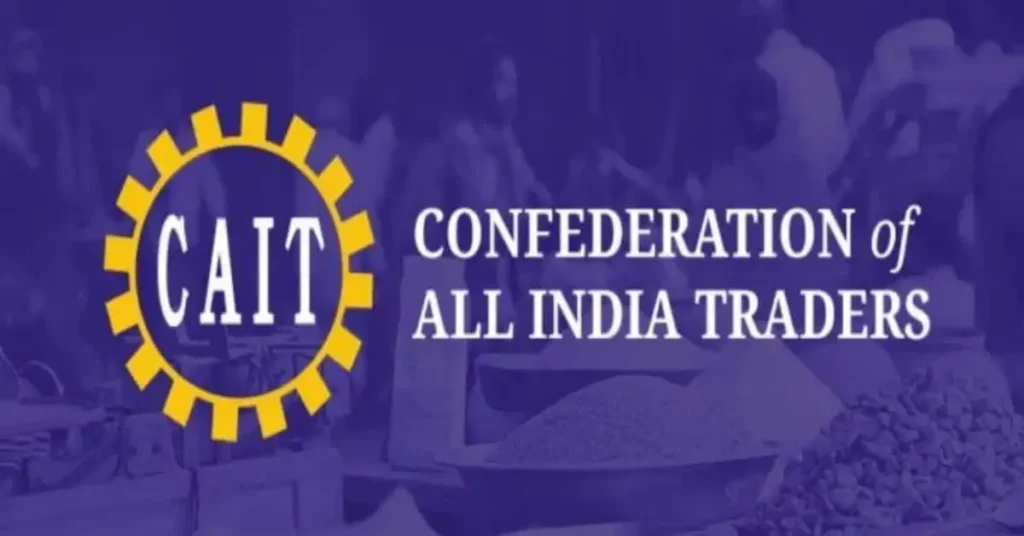CAIT Urges Government to Ban Pakistani Flags and Merchandise on E-commerce Sites
The Confederation of All India Traders (CAIT) has called upon the central government to take immediate action against the sale of Pakistani flags and related items on Indian e-commerce platforms. The move comes in response to growing concerns over products that, according to CAIT, compromise national pride and disrespect India’s sovereignty.

A Matter of National Sentiment
In an official statement, CAIT’s National President, B.C. Bhartia, voiced serious concern about the online availability of merchandise featuring Pakistan’s national symbols. “This issue touches the core of our national identity and sentiment,” he said. Bhartia emphasized that selling such items within India is unacceptable and deeply offensive to patriotic values.
The organization highlighted that several online platforms have been listing Pakistani flags, badges, and memorabilia—something they believe should be strictly prohibited in light of ongoing tensions between the two countries.
Online Marketplaces Under Fire
CAIT criticized major e-commerce companies for their lack of oversight when it comes to regulating the content and products listed by third-party sellers. Despite India’s firm political stance on Pakistan, these items continue to appear on online marketplaces, triggering strong reactions from citizens and business communities alike.
The traders’ body believes that digital platforms should implement stricter content monitoring systems to prevent the listing of politically sensitive or controversial goods.
Concerns Over Ethics and Oversight
The sale of such foreign national symbols raises ethical concerns, especially when those items represent a country with which India shares a strained relationship. CAIT contends that freedom of trade cannot come at the expense of national respect and unity.
“There’s a difference between open trade and irresponsibility,” said Bhartia. “Allowing the sale of another nation’s flag—especially one seen as hostile—within Indian borders is not just insensitive, it’s dangerous.”
The organization has urged the Ministry of Home Affairs, Ministry of Commerce, and the Ministry of Electronics and Information Technology to step in and establish clear guidelines for e-commerce platforms operating in India.
Traders Demand Accountability
Local businesses and retail communities have backed CAIT’s appeal, expressing frustration over the lack of regulation in online marketplaces. Many feel that traditional brick-and-mortar stores are held to higher standards, while digital sellers operate with little restriction.
According to CAIT, this imbalance puts ethical Indian traders at a disadvantage. They argue that e-commerce giants must be held accountable and should not allow sellers to list items that hurt national interest.
“We are not against technology or online business,” a CAIT representative clarified. “But these platforms must align their operations with India’s values and public sentiment.”
Promoting National Interest in E-commerce
Beyond the ban, CAIT is also pushing for a broader shift toward promoting Indian-made products and a sense of national responsibility in online trade. The organization wants platforms to support initiatives like ‘Vocal for Local’ and discourage the promotion of goods tied to foreign adversaries.
“This is about more than just removing a few items,” Bhartia noted. “It’s about ensuring our digital economy respects Indian values and supports Indian products.”
CAIT suggests that e-commerce platforms adopt a more patriotic approach in curating their product listings, especially during periods of diplomatic sensitivity.
Mixed Reactions Online
The appeal has sparked debate across social media. While many users support the idea of banning Pakistani merchandise from Indian sites, others argue that such a move might be excessive unless the items are being misused.
Still, a large section of the public agrees that selling flags or emblems of a nation often viewed as unfriendly goes against the spirit of national unity—particularly during times of heightened patriotism.
Awaiting Government Response
So far, the central government has not issued a formal response to CAIT’s request. However, with increasing attention from both the public and trader communities, the issue is likely to gain traction in policy discussions.
If authorities act on CAIT’s demand, it could set a new standard for regulating e-commerce in India—especially in relation to politically and culturally sensitive content.
Conclusion
The Confederation of All India Traders’ appeal to ban Pakistani flags and similar products on Indian e-commerce platforms brings to light a deeper question about where to draw the line in a free market. As India embraces the digital age, the balance between commerce, ethics, and patriotism becomes more important than ever.
While the final decision rests with the government, this incident has ignited a nationwide conversation about responsible trade practices, cultural respect, and how online marketplaces should reflect the values of the country they operate in.






